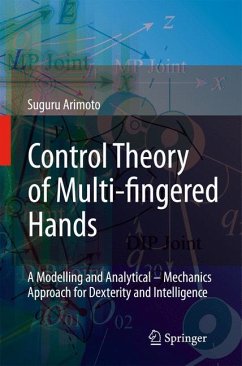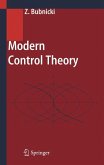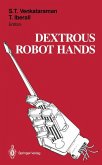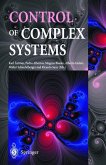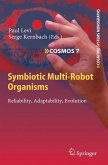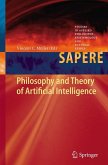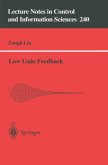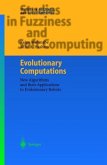The hand is an agency of the brain; it reflects activities of the brain and thereby can be seen as a mirror to the mind. The dexterity of the hand has been investigated widely in developmental psychology and in anthropology. Since robotics launched in the mid-1970s, numerous multi-fingered hands mimicking the human hand have been designed and made in a number of universities and research institutes, in addition to sophisticated prosthetic hands with plural fingers.
Control Theory of Multi-fingered Hands presents a comprehensive insight into the intelligence and dexterity of robotic multi-fingered hands from both the physical and control-theoretic viewpoints. The book:
focuses on the problem of how to control dexterous movements of fingers interacting with an object in the execution of everyday tasks;
clarifies what kinds of sensory-motor coordinated signals are necessary and sufficient for realising stable grasping and/or object manipulation,in particular, the synergistic choices of control gains in co-activation signals for finger muscles and tendons crucial in realising secure pinching motions;
derives a mathematical model of the dynamics of a complicated mechanism of multiple fingers with multiple joints physically interacting; and,
considers the problem of how to recreate the function of "blind grasping".
Control Theory of Multi-fingered Hands will be a useful reference for postgraduate students and researchers in this field, as well as engineers and roboticists.
Hinweis: Dieser Artikel kann nur an eine deutsche Lieferadresse ausgeliefert werden.
Control Theory of Multi-fingered Hands presents a comprehensive insight into the intelligence and dexterity of robotic multi-fingered hands from both the physical and control-theoretic viewpoints. The book:
focuses on the problem of how to control dexterous movements of fingers interacting with an object in the execution of everyday tasks;
clarifies what kinds of sensory-motor coordinated signals are necessary and sufficient for realising stable grasping and/or object manipulation,in particular, the synergistic choices of control gains in co-activation signals for finger muscles and tendons crucial in realising secure pinching motions;
derives a mathematical model of the dynamics of a complicated mechanism of multiple fingers with multiple joints physically interacting; and,
considers the problem of how to recreate the function of "blind grasping".
Control Theory of Multi-fingered Hands will be a useful reference for postgraduate students and researchers in this field, as well as engineers and roboticists.
Hinweis: Dieser Artikel kann nur an eine deutsche Lieferadresse ausgeliefert werden.

